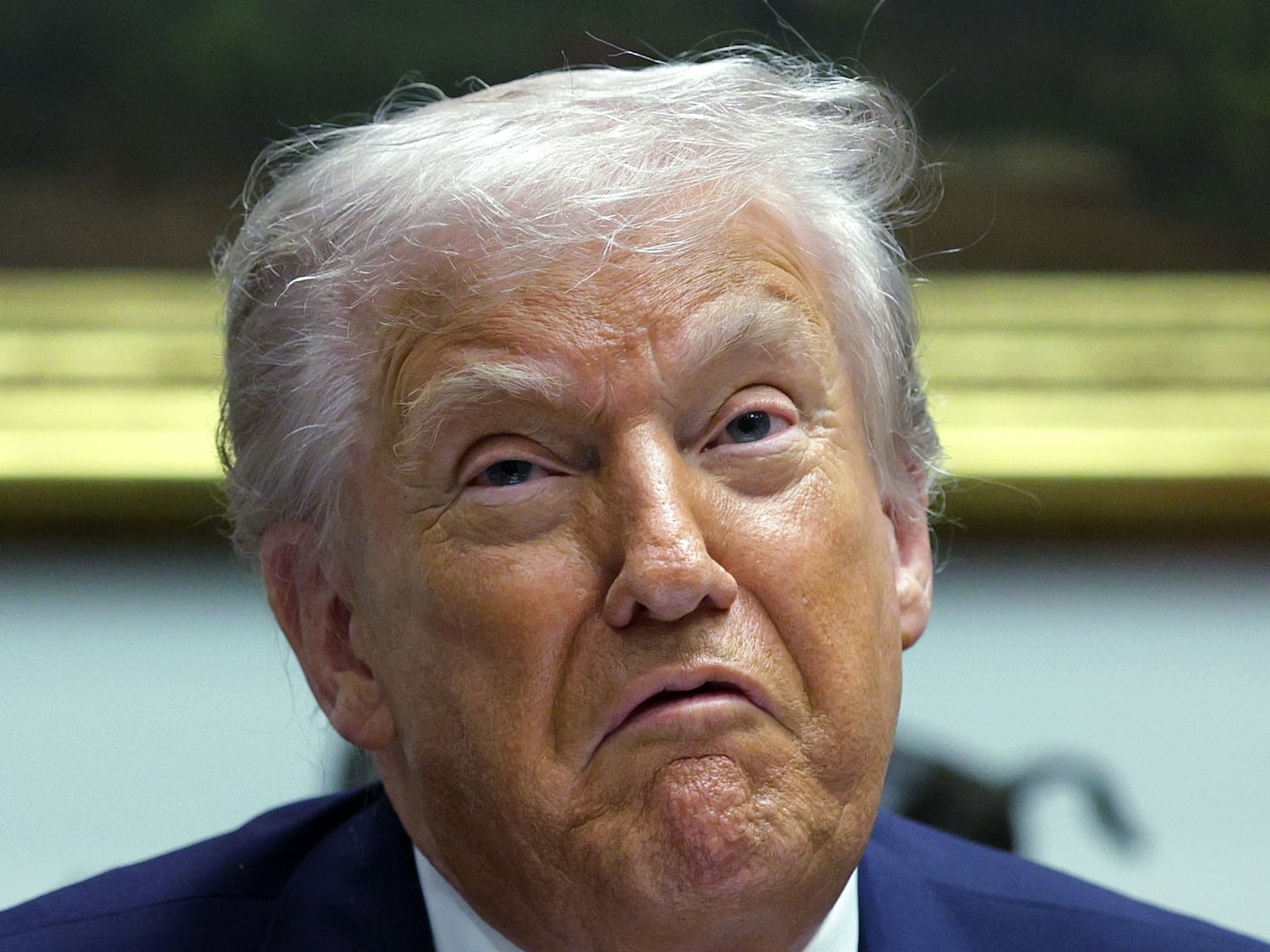In the Crimea crisis, it seems Ron Paul thinks that libertarianism stops at water’s edge.
The former Republican congressman and libertarian icon has long enjoyed a mixed reputation in the United States. While many admire Paul for his small government views on civil liberties, other shy away from a politician who has criticized the Civil Rights Act of 1964 and allowed a series of racist and conspiratorial news letters to be published under his own name.
However, the former congressman whose presidential bids in 2008 and 2012 helped elevate libertarians from a political afterthought to a key constituency in the Republican Party and whose son, Rand Paul is poised for a 2016 bid for the White House, has now started a new chapter of his career. He's defending the chauvinist and imperialist Russian regime of President Vladimir Putin.
Over the past several weeks, Paul has become one of the most vocal American supporters of Russia’s invasion and occupation of Crimea, a semi-autonomous region of Ukraine. In the aftermath of a revolution that drove out its ally in Kiev, Viktor Yanukovych, Moscow is attempting to annex the province by holding a “referendum” Sunday in hopes that it will provide a patina of legality to its blatantly illegal land grab. Paul, long a foe of military action and democracy promotion efforts overseas, has not been content to limit himself to criticisms of American policies in Eastern Europe. He has gone out of his way to legitimize and justify the actions of Putin.
“He’s no angel but actually he has some law on his side,” Paul said earlier this week on the Fox Business Network. “They have contracts and agreements and treaties for a naval base there and the permission to go about that area.” While Russia has leased its naval base from the Ukrainian government in the Crimean port city of Sevastopol until 2042, the terms of that agreement explicitly prohibit Russian forces from leaving their barracks, never mind overrunning and occupying government buildings, violating Ukraine’s airspace, and taking over border posts.
It is for this reason that the 20,000 or so Russian forces now spread out across the peninsula, harassing journalists and threatening anyone else who protests their presence there, are not wearing Russian uniforms; according to Moscow, these men are “local self-defense forces,” not Russian soldiers. This is a lie, and only the most slavish of Russian propagandists are claiming otherwise.
Russia’s actions also violate the 1994 Budapest Memorandum, which it signed along with the United Kingdom and the United States, committing all parties “to refrain from the threat or use of force against the territorial integrity or political independence of Ukraine” in exchange for Kiev’s transferring its then-considerable post-Soviet nuclear weapons stockpile to Moscow.
Paul and his supporters used to complain that the American media and political establishment never gave him a fair shake in his various presidential campaigns, so it is a little odd to see him and his denizens providing a democratic gloss to Sunday’s “referendum” on Crimea’s status. The referendum on the Crimea is happening quite literally at gunpoint as Russian forces have occupied the entire peninsula and offers no option for Crimeans to maintain their current status within the Ukraine. Instead, voters can either vote to allow Russia to annex the peninsula or "reunification of Crimea with Russia" in the parlance of the ballot or to "restore the 1992 Constitution and the status of Crimea as a part of Ukraine." (Early exit polls show 93% of Crimean voters chose to join Russia.)
The referendum—which has been denounced as illegal by outside observers, including the Organization for Security and Cooperation in Europe—was only scheduled by the Crimean parliament after armed men occupied that body in late February. Those gunmen installed a pro-Russian figurehead as the region's Prime Minister, as well—a guy named Sergey Aksyonov, the alleged criminal leader of a miniscule pro-Russian political party which has never earned more than 4% at the polls.
But for Ron Paul and the acolytes at his think tank, a motley crew of Putin apologists and admirers of post-Soviet thugs, Sunday’s sham election is all about the spirit of 1776. He recently wrote that "The only question that remains is whether there will there be an honest election, and I don’t see any reason there can’t be.” He did this on the website of his Ron Paul Institute for Peace and Prosperity, which, in light of current events might be better called the Ron Paul Institute for Russian Aggression and Economic Exploitation (Its director, Daniel McAdams, has referred to the American ambassador to Ukraine as an “outlaw.”)
Paul bases his support of the Crimean referendum on libertarian grounds, as if what’s happening half a world away under the watchful eyes of the Russian military is akin to a Tea Party protest demanding less federal control over education policy. “There should be a right of secession,” Paul said on Fox. One cannot consider Paul’s defense of the Crimean “secession” without first becoming familiar with his nostalgia for the American one.
A crucial element of Paul’s worldview and that of his paleoconservative brethren is that America began to go to hell in a hand-basket with the Union victory in the American Civil War. Abraham Lincoln’s firm use of executive power to crush the slaveholding states’ attempt to secede initiated, in their view, the centralization of federal government power that continues to this day. The 1992 issue of the Ron Paul Survival Report (the name of which was a deliberate appeal to the then burgeoning far-right “survivalist” movement preparing for racial apocalypse) stated that “the right of secession should be ingrained in a free society” and that “there is nothing wrong with loosely banding together small units of government. With the disintegration of the Soviet Union, we too should consider it.” Ironically, while Paul was applauding Ukrainian independence 20 years ago, he is now cheering the Crimea’s forcible reintegration into Russia.
In addition to whitewashing Russian aggression, Paul depicts some of the most benign elements of America’s overseas involvement as nefarious and illegitimate. “The evidence is pretty clear that the NGOs [non-governmental organizations] financed by our government have been agitating with billions of dollars, trying to get that government changed,” he told The Guardian. “Our hands are not clean.”
By this, Paul was referring to the National Endowment for Democracy (NED), a U.S.-government funded, independently operated grant-making institution that supports civil society organizations in authoritarian states as well as emerging democracies. It enjoys bipartisan support, but has long been a target of Paul and other American isolationists, who see malevolence in everything their government does. Paul’s belief that America was trying to orchestrate “regime change” in Ukraine goes back to at least 2004, when he railed against supposed NED “meddling” in the 2004 presidential election that Yanukovych attempted to steal. (For the curious, here’s a list of NED grantees in Ukraine, which range from a “weekly youth journal” to election monitoring outfits).
To be sure, Yanukovych’s election theft was exposed and resisted by some U.S. and European government-funded civil society organizations, which would scarcely be able to exist without outside support. Why Americans should be outraged about this is something Paul neglects to answer.
There is an irony in a so-called “libertarian” defending the likes of Vladimir Putin. Ron Paul and his ilk claim to support individual rights, free markets, and a foreign policy of non-violence, yet here they are defending a man who hounds gays, presides over a kleptocratic mafia state, and invades his neighbors. Paul shirks the label of “isolationist,” preferring instead that of, “non-interventionist,” which is true only in the sense that he opposes interventionism—of even the non-violent sort—undertaken by the United States and its democratic allies. When it comes to violent Russian intervention in the affairs of its sovereign neighbors, however, Paul agrees with none other than former Russian President Dmitry Medvedev, who said that Moscow retains a “sphere of privileged interests” among the ex-vassal states of the Soviet Union. Why would a formerly elected official in America lend ideological cover to a foreign dictator’s assault on the basic human rights of his own people?





